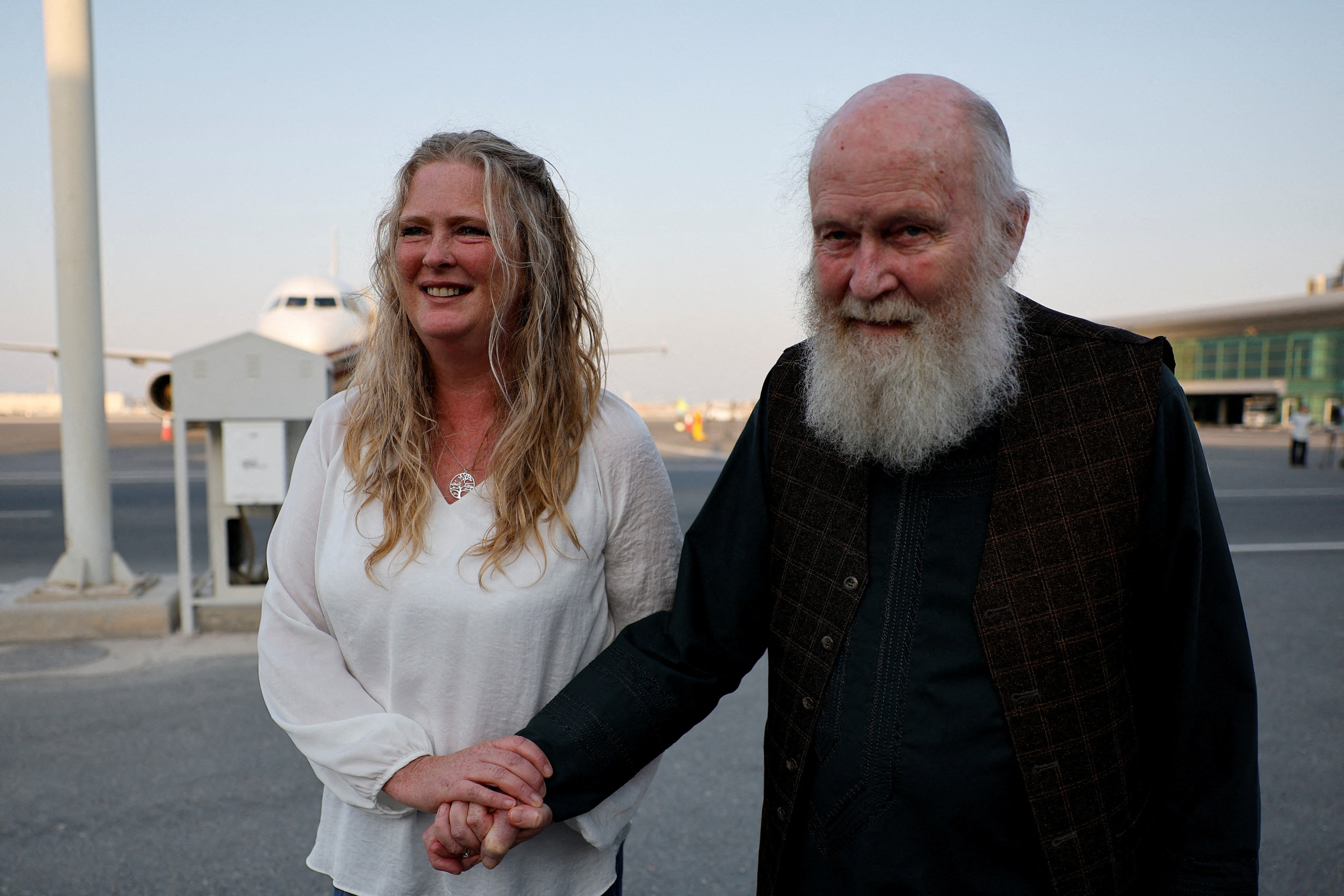Peter Reynolds, 80, and his wife Barbie Reynolds, 76, returned to the UK last week after seven and a half months in Taliban custody. In an interview with British media on 22/9, they recounted their ordeal and the terror they experienced.
The Reynolds have a deep love for Afghanistan, having married there in 1970. Since 2009, they have run a charity in the country, implementing training projects in Kabul and Bamiyan for nearly two decades.
One of their educational projects, seemingly approved by local authorities, involved training women and children, despite the Taliban's ban on women working and girls over 12 attending school.
On 1/2, after flying from Kabul to Bamiyan province with their friend Faye Hall and a translator, the couple were arrested by the Taliban without explanation.
 |
Peter and Barbie Reynolds at Doha Airport, Qatar, on 19/9, after their release by the Taliban. Photo: Reuters |
Peter and Barbie Reynolds at Doha Airport, Qatar, on 19/9, after their release by the Taliban. Photo: Reuters
While Hall and the translator were released, the Reynolds were imprisoned and transferred between 10 detention facilities, including Pul-e-Charkhi, a high-security prison outside Kabul housing some of the country's most dangerous criminals.
For two months, they were confined to windowless basement cells. They were brought before a court about 4 times but never charged. "When I was taken to court, I was handcuffed and shackled, standing alongside murderers and rapists," Mr. Reynolds said.
The couple found this baffling, adding that they were treated politely but felt powerless. "They called us guests. Yet, when taken to court, we were bound and placed among those accused of murder and rape," he explained.
For Mrs. Reynolds, the most distressing moment was seeing her 80-year-old husband handcuffed and shackled, being loaded into a van. They believed they were about to be executed.
"The worst part was being taken away and separated after 55 years together," Mr. Reynolds echoed. Both suffered health issues during their imprisonment, including severe anemia.
The British government engaged in diplomatic efforts, negotiating with the Taliban for their release. In the final weeks, they were moved above ground, where they reported receiving better food and treatment.
The Taliban claimed the Reynolds received adequate medical care and that their human rights were upheld. They also stated the couple served a sentence in Afghanistan but didn't disclose the reason for their arrest.
British Minister of State for the Middle East, Hamish Falconer, attributed their release to "good diplomacy" and thanked the Qatari government for mediating, without elaborating.
Back in the UK, the Reynolds have been shopping for clothes, readjusting to life. However, they expressed lingering concerns about Afghanistan.
"We're leaving behind kind people, our home, and all our possessions," Mr. Reynolds said, adding they have no immediate plans to return.
"We believe the wonderful Afghans we know will build a bright future for their country without us," the couple stated.
The UK no longer has an embassy in Afghanistan and warns against all travel to the country as "extremely dangerous." The UK Foreign Office also warns of an increased risk of detention for British citizens, who could face months or even years in prison.
Ngoc Anh (BBC, Reuters)












